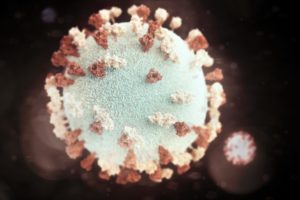After the wake of pandemic due to novel coronavirus, leading pharmaceutical companies competed in developing vaccine through different methods and when the vaccines were developed, they started applying for patent protection for their products. Patenting the drugs and creating monopoly over it affects the affordability and availability of the products, which perturbed the whole world. In this regard, references were made of Jonas Salk who did not patented his polio vaccine so that it would be affordable to millions of people.
Laws were made across various countries for compulsory licensing of essential drugs, simultaneously many companies voluntarily gave license to manufacture and sell their drugs to certain companies so that it can be made available and affordable to public at large. Companies came forward with exclusive voluntary licensing/ exclusive voluntary licensing and non- enforcement of patented drugs to help in the time of crisis. A leading US pharmaceutical company Gilead voluntary licensed its Remdesivir drug to Cipla Ltd., Dr. Reddy’s Laboratories Ltd., Eva Pharma, Ferozsons Laboratories, and Zydus Cadila Healthcare Ltd[1] e.t.c.. Similarly, Moderna, a leading pharmaceutical company of USA, pledged not to enforce it Covid-19 related patents[2]. AbbVie, a bio-pharmaceutical company, waived its patent rights relating to lopinavir/ritonavir (LPV/r), a second-line treatment recommended by the WHO for the human immunodeficiency virus (HIV), for studying it in coronavirus treatment.
Despite the production of vaccines in large volumes, it is not available in requisite quantity to low income countries, the main factors behind this situation are less vaccine manufacturing plants in low income countries, priority given by the vaccine manufacturing countries to their citizens and the pre- booking of vaccines done by few countries.
A grave situation emerged when more than 70% of vaccines to be produced were pre booked by few countries in 2021 and the low income countries were deprived from the benefits of the vaccines due to less availability. To counter this situation COVAX facility led by Gavi the vaccine alliance, WHO and CEPI-UNICEF has come up. It is working with manufacturers and partners on the procurement and transportation of Covid-19 vaccine doses since February, 2021[3]. African continent which has most low income countries, till September, 2021, around twelve vaccine manufacturing plants are installed or are in pipeline across six African countries[4] . Also, in June, 2021 leaders of G7 group pledged to provide extra doses of vaccine for low and middle income countries by the end of 2022. In African continent, only around 3% of whole population is fully vaccinated and on the counterpart, Europe and North America has fully vaccinated nearly 50% of total population.
Till date, only 4.2% of people in low income countries have received atleast one dose.[5] Despite the efforts of United Nations, high income, middle income countries and pharmaceutical companies, the distribution of vaccines is unequal. Such unequal distribution of vaccines have economic implications as well. The high income countries will lead to the path of recovery while the low income countries will continue to struggle on both economy and health of its people.
[1] https://www.gilead.com/purpose/advancing-global-health/covid-19/voluntary-licensing-agreements-for-remdesivir
[2] https://investors.modernatx.com/news-releases/news-release-details/statement-moderna-intellectual-property-matters-during-covid-19
[3] https://www.unicef.org/supply/covax-ensuring-global-equitable-access-covid-19-vaccines
[4] https://carnegieendowment.org/2021/09/13/is-there-any-covid-19-vaccine-production-in-africa-pub-85320
[5] https://ourworldindata.org/covid-vaccinations
Shantanu Mishra, Intern at S.S. Rana & Co. has assisted in the research of this article.


